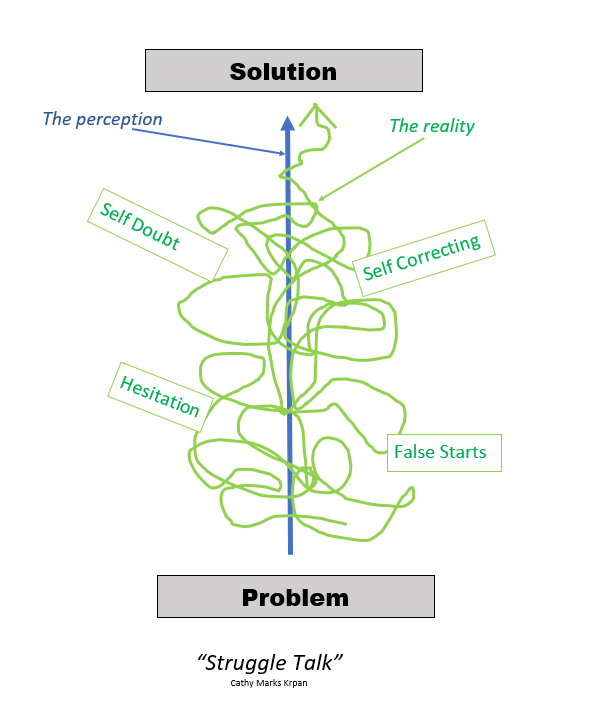Mistakes
No one learns math without making mistakes. Neuroscience research has shown that there is more neural activity (building connections, memories, learning) in the brain when there is a mistake versus when a student answers correctly. Mistakes must be honoured in the classroom as a springboard to learning.
Kathy Marks Krpan writes about "Struggle Talk". Help students understand that struggle is an important part of math class--more important than churning out completed tasks, or being correct.

See Jo Boaler's work on growth mindset and accepting errors.
Below is a video on a classroom technique called "My Favorite No", a way that a math teacher uses and honours mistaken reasoning as a way to construct lessons.
Mistakes
There has been considerable work on math anxiety and it is widely recognized that anxiety limits cognitive functioning. We can't learn well, if at all, when we are nervous about performance. Acknowledging the reality and necessity of errors helps reduce anxiety around math.